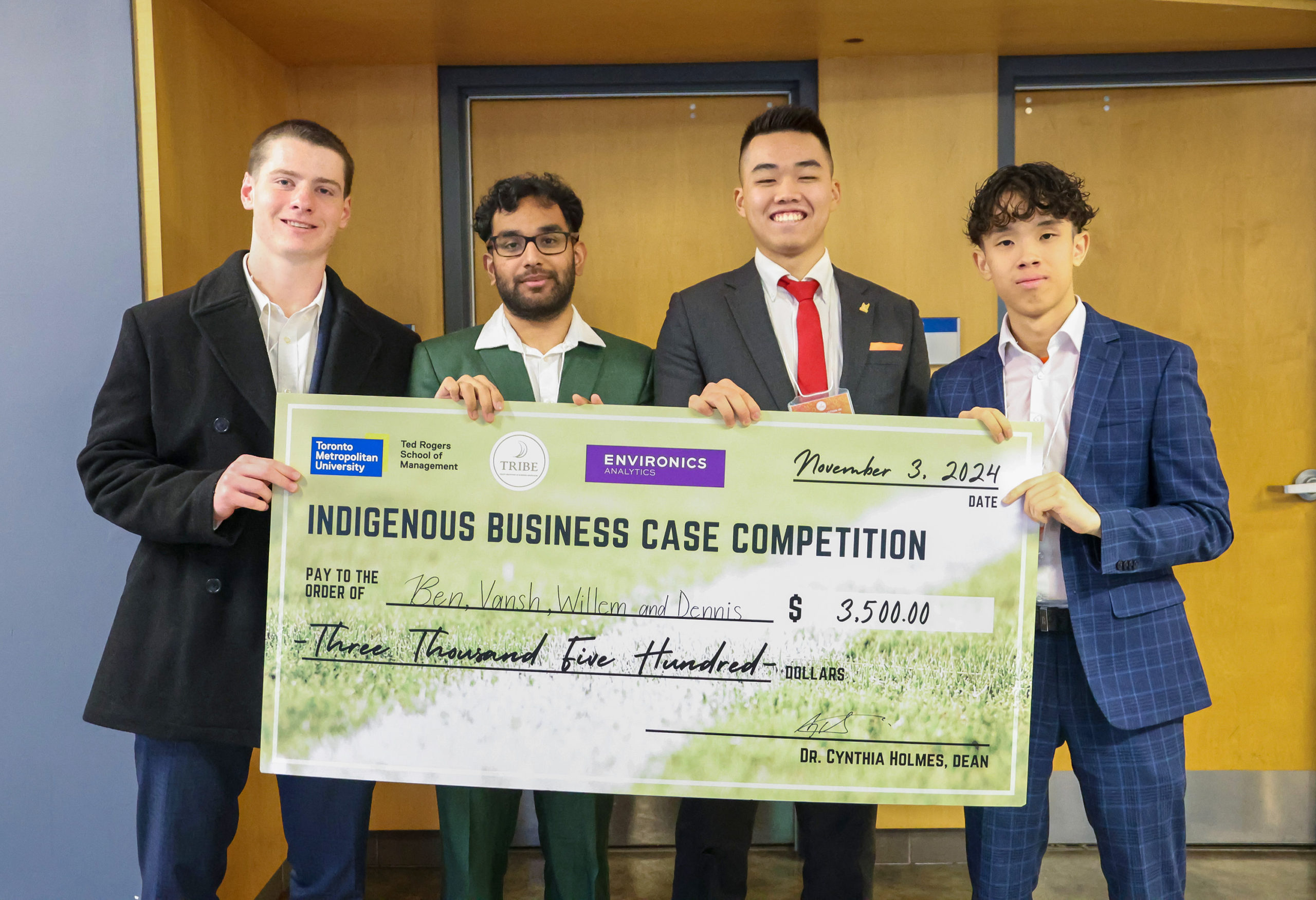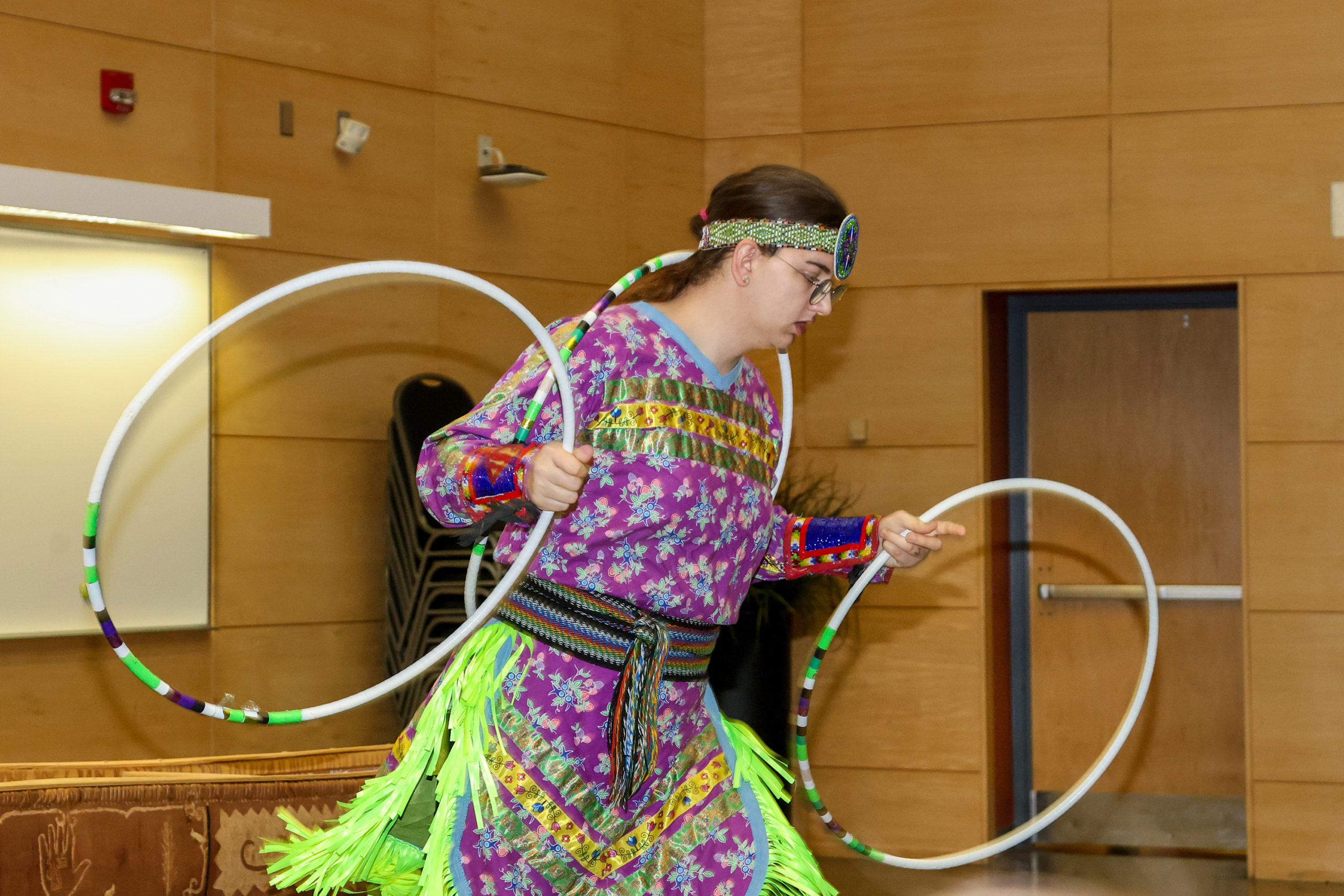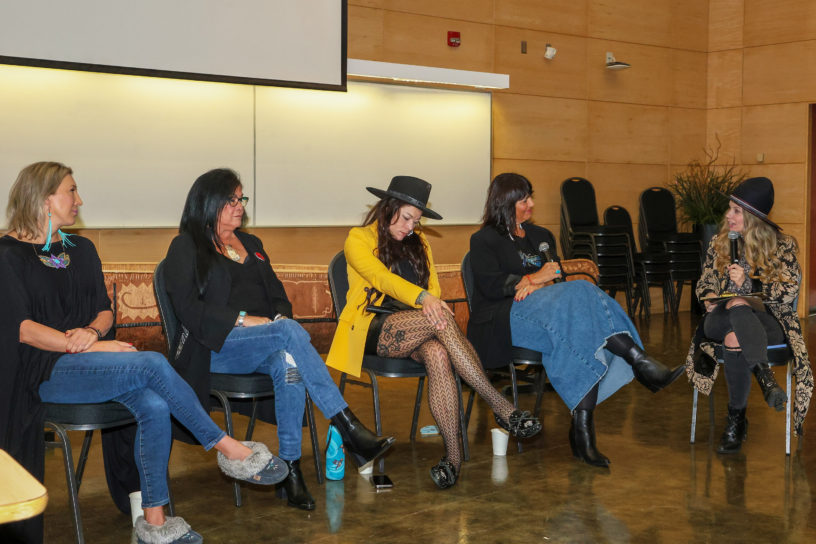By Maria Beltran
Students, community members and business leaders gathered at Toronto Metropolitan University (TMU) on Nov. 3 for this year’s Reconciliation in Business Conference, hosted by the Treaty Relations in Business Education student group.
Organized in response to Call-to-Action 92 of the Truth and Reconciliation Commission, the event brought people together to learn, celebrate and reflect on Indigenous entrepreneurship as a driving force in the Canadian economy.
The conference emphasized the role of Indigenous-led businesses in addressing socioeconomic disparities, fostering self-determination and creating pathways for sustainable growth. Attendees participated in discussion circles, engaged with an Indigenous marketplace, listened to research presentations and attended workshops that explored Indigenous voices.
With 45 student volunteers and over 150 participants, the diversity of attendees ranged from TMU members to alumni and professionals. Students from various universities including Algoma University and Wilfrid Laurier University also took part in the conference’s first-ever Indigenous business case competition.

The case competition, titled “A Rock Without a Home,” centred around creating a marketing strategy for lacrosse team Toronto Rock with four student teams competing for a $3,500 prize. The winning group—consisting of Benjamin Cohen, Vansh Saini, Willem Zhang and Dennis Chen, all TMU students from the Ted Rogers School of Management (TRSM)—are seasoned competitors in case challenges.
Being a part of the Ted Rogers Case Team—the official case competition team that represents TRSM at a variety of competitions—the students cited their drive to solve real-world problems as their inspiration for participating.
“We’re pretty good friends and we wanted to first of all, delegate properly, but even before that, understand the case holistically,” said Zhang. “We delegate to our respective strengths and weaknesses so ensuring that the person that tackles the portion of the case itself is the one that’s actually more suitable.”
When asked what they planned to do after winning, Cohen said there’s more work to do.
“[We] have another case that’s due tonight, so [we’re] gonna be working hard tonight on that case and then we have more case competitions lined up,” he said.
Starting off with opening remarks from Claire Sault, Chief of the Mississaugas of the Credit First Nation, the event offered a full day of activities and presentations. A traditional hoop dance was also performed by River Christie-White, a fourth-year professional music student and a first-generation Indigenous person in their family to attend university.

Christie-White, who does diversity, equity and inclusion-based consulting through an organization they started called Hoops for Hope, spoke on the dance’s significance.
“It’s a dance that gives thanks to everything that we have from a cultural perspective. It was used as a medicine dance in that way,” they said. “But then also, this dance is showcasing an aspect of unity by bringing these hoops together to create these different designs.”
Kasie Lewis-Graham, a masters student at TRSM, was the project coordinator who led the volunteers and vendors at last year’s conference. This year, she simply volunteered. She spoke on the importance of unity and creating decolonizing spaces on campus.
“We’re used to all these business conferences and having these business discourses,” she said. “But having a space [where] we can invite people to have conversations that are working towards decolonizing corporate culture and looking at it in a different way is what I’m interested in.”
Christie-White echoed this sentiment in their motivation behind participating in the conference and similar business-oriented workshops.
“The biggest thing I find that corporations and corporate culture needs to understand is identity doesn’t end the moment you step in the door,” they said. “It’s important that we bring these conversations into these spaces.”
“When you’re hiring Indigenous people to work at your organizations or corporations or when you’re hiring those with disabilities, it’s not just checking a box and then you’re just another person in this company,” continued Christie-White. “You’re another Indigenous person and then we have these supports, we understand these issues that you face, or these things that you may be going through.”
“Uplifting other communities is important as well. Because it builds that connection and when you’re facing hardship, those communities will come together”
Another standout at the conference was a discussion circle led by moderator Rhiannon Rosalind. The panel titled “Bridging the Gap: Empowering Indigenous Women Entrepreneurs in Corporate Collaborations,” featured Indigenous women entrepreneurs who shared powerful stories of personal healing, reclaiming identity and finding empowerment through entrepreneurship.
Shannon Pestun, senior advisor to the Diversity Institute for Canada’s Women Entrepreneurship Knowledge Hub, talked about recognizing the systemic issues that have affected her community surrounding the advocacy work she does now with Indigenous and women’s entrepreneurship.
“My first happy accident was going back to school at 21 and under a mentor, a lady I worked for, [who] helped me see what I couldn’t see and she actually helped me navigate the system,” said Pestun.
“I couldn’t not see where racism existed in our systems. For Indigenous peoples, we were left out and excluded from systems and the legacy of residential schools created a legacy of poverty,” she continued.
During the circle, Michele Baptiste, senior manager of Indigenous Procurement Relations at Scotiabank, spoke about her journey of healing from trauma through connecting with the Indigenous community.
“It was like this big hole inside of me was finally filled. I spent a lot of time with elders, in ceremonies and that helped me complete my circle and overcome feeling like an imposter,” said Baptiste. “Now, I can just show up as who I really am.”
“The biggest thing that I find that corporations and corporate culture needs to understand is that identity doesn’t end the moment you step in the door”
Similarly, Lewis-Graham emphasized shared community as her motivation for joining the conference team.
“As a Black woman, I think I was really drawn to the Indigenous communities,” she said. “I think there’s a shared commitment to not just community, but generational healing and reconciling the past. There’s some sort of shared sense of empowerment as well.”
Christie-White said having these conferences be open to the wider TMU community is an example of mutual respect with other equity-deserving groups.
“Uplifting other communities is important as well. Because it builds that connection and when you’re facing hardship, those communities will come together,” they said. “It’s sort of this mutual respect and understanding [that] we come to each other’s aid because when we have those hardships, those people will have our backs.”












Leave a Reply